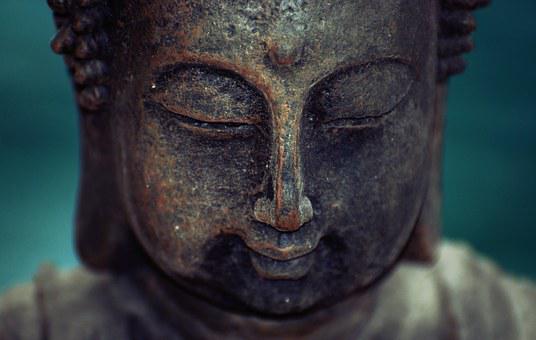Sunday July 31, 2022, four texts will be read.
First reading Book of Qoheleth (Qo 1, 2; 2, 21-23).
Psalm 89.
Second reading Letter of Saint Paul to the Colossians (Col 3, 1-5.9-11).
The Gospel according to Saint Luke (Lk 12, 13-21).
Luke 12, 13-21
From the middle of the crowd, someone asked Jesus: “Master, tell my brother to share with me our inheritance. »
Jesus answered him, “Man, who then appointed me to be your judge or arbiter of your divisions? »
Then, addressing everyone: “Beware of all greed, for one’s life, even in abundance, does not depend on what he has. »
And he told them this parable: “There was a rich man whose estate had brought in well.
He wondered, “What am I going to do? Because I have no place to put my harvest.”
Then he said to himself: “Here is what I am going to do: I am going to tear down my granaries, I will build bigger ones and I will put all my corn and all my goods there.
So I will say to myself: here you are with many goods at your disposal, for many years. Rest, eat, drink, enjoy life.”
But God said to him: “You are crazy: this very night, you will be asked for your life. And what you will have accumulated, who will have it?”
This is what happens to one who lays up for himself, instead of being rich in the sight of God. »
The issue of inheritance
Jesus seems to treat the appeal of this man very lightly, asking for his intervention in a matter of inheritance. This attitude of the master must have seemed strange to those close to him, accustomed as they were to the Torah. Indeed, we learn from the first biblical books how important it is to inherit, to share the land with care and justice.
The people of Israel, by taking possession of the land that God gave them, quickly established the cadastre of the tribes, the families and fixed the rules of inheritance willed by God: their survival was at stake. Among the ancestors of Christ are Ruth and Booz whose story is part of a crucial matter of inheritance: it is a question for this foreigner and this Israelite of assuming a heritage which, otherwise, would fall into disherence. Jesus belongs, from his birth, to a long past of inheritances, of sharing of which we could give other examples.
We are therefore taken aback that Jesus rejects the approach of this man who asks him to intervene with his brother so that he gives him his share of the inheritance. We could of course go straight to a “spiritual” interpretation: Jesus would like to show that the only inheritance is mystical, immaterial…
It would be going too fast in our regime of incarnation. We all know that it is necessary to earn a living, to raise enough to raise your children, to train them, to launch them into a professional life, to leave them something after you…
place of discussion
Heritage, according to the Bible, therefore comes from afar: it is first of all a gift from God, the land offered as an inheritance. It is bequeathed by the ancestors, it passes to the descendants. It is therefore a place of exchanges, of cohabitation between the generations and the contemporaries of the surrounding area.
Jesus, in the parable that continues his subject, shows how this living reality of inheritance, as a gift that one receives and transmits, can suddenly become statuesque, a veritable idol: my heritage becomes my thing. It is no longer the permanent occasion for an encounter with God, the Giver of all good, with those before me, after me, those who live around me. It becomes my goal, my acquisition which stops with me, in a deadly grip.
This is the source of many meditations to be carried out, especially concerning the Church as an inheritance for each one… Listen to the man in the parable: “Then I will say to myself: here you are, then, with many goods at your disposal, for many years. Rest…” This man speaks to himself by telling him what “himself” he must become! There is only him on his horizon, an indefinitely multiplied “I”: the absolute opposite of the biblical heritage.
The danger of petrifying
Our gospel does not denounce so much the “danger of riches”, according to a title sometimes given to this passage, as the imminent danger of petrifying what we have received from God and from an entire tradition.
Etymologically, heritage is what one receives from the father. Let us capitalize the word “Father” and we receive from this Father Christ as Patrimony: we cannot freeze it, fix it; it is necessary to share it, and in doing so nothing is lost. Quite the contrary!
Philippe Lefebvre is a Dominican friar, professor of Old Testament at the Faculty of Theology of Friborg (Switzerland) and member of the Pontifical Biblical Commission. He notably published Joseph, the eloquence of a taciturn (Salvator) and The Bible’s Intrusive Words on the Family (Stag), how to kill jesus (Stag).
We would love to give thanks to the author of this article for this outstanding content
Biblical meditation: heritage or petrification?
We have our social media profiles here , as well as additional related pages here.https://nimblespirit.com/related-pages/

